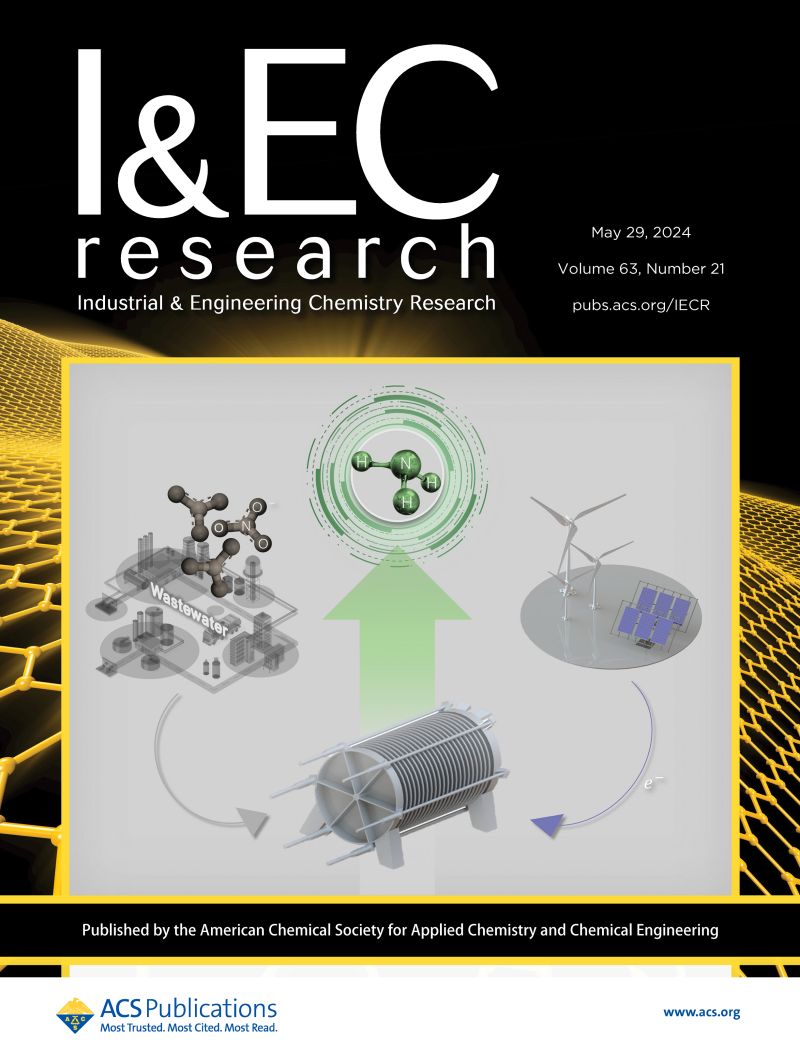Direct Jet Fuel Synthesis Over Co/M-TUD-1 Catalysts by the Integration of Mesopore Confinement Effects and Acid Hydrocracking
IF 3.8
3区 工程技术
Q2 ENGINEERING, CHEMICAL
引用次数: 0
Abstract
Amid growing global energy demands and the imperative to reduce carbon emissions, sustainable aviation fuel (SAF) production via Fischer–Tropsch (FT) synthesis has emerged as a pivotal solution. This study focuses on enhancing the selectivity of C8–C16 hydrocarbons for jet fuel through the integration of mesopore confinement effects and acid hydrocracking by developing novel Co/M-TUD-1 catalysts with a uniform, continuous three-dimensional mesoporous architecture. Utilizing sol–gel and melt infiltration methods for catalyst preparation and incorporating metals such as Al, Zr, La, and Ce, we explored how different supports influence FT synthesis outcomes. Characterization techniques, including N2 physisorption, H2-TPR, XRD, NH3-TPD, and Py-FTIR, were employed to understand the physicochemical properties of these catalysts. Experimental results demonstrated significant improvements in jet fuel selectivity, achieving up to 51.3% selectivity and a productivity of 174.7 g/kgcat/h with the Co/Al-TUD-1 catalyst. Further optimization through adjustment of reaction conditions confirmed the potential for industrial-scale SAF production, offering a cleaner, more sustainable approach to addressing fossil fuel shortages.

Co/ m - ud -1催化剂上介孔约束效应与酸加氢裂化的直接喷气燃料合成
面对日益增长的全球能源需求和减少碳排放的迫切需要,通过费托合成技术生产可持续航空燃料(SAF)已成为一种关键的解决方案。本研究主要通过开发具有均匀连续三维介孔结构的新型Co/ m - ud -1催化剂,将介孔约束效应与酸加氢裂化相结合,提高C8-C16碳氢化合物对喷气燃料的选择性。利用溶胶-凝胶法和熔融渗透法制备催化剂,并加入Al、Zr、La和Ce等金属,我们探索了不同载体对FT合成结果的影响。采用N2物理吸附、H2-TPR、XRD、NH3-TPD、Py-FTIR等表征技术对催化剂的理化性质进行了表征。实验结果表明,Co/ al - ud -1催化剂显著提高了喷气燃料的选择性,选择性高达51.3%,产率为174.7 g/kgcat/h。通过调整反应条件进一步优化,确认了SAF工业规模生产的潜力,为解决化石燃料短缺问题提供了更清洁、更可持续的方法。
本文章由计算机程序翻译,如有差异,请以英文原文为准。
求助全文
约1分钟内获得全文
求助全文
来源期刊

Industrial & Engineering Chemistry Research
工程技术-工程:化工
CiteScore
7.40
自引率
7.10%
发文量
1467
审稿时长
2.8 months
期刊介绍:
ndustrial & Engineering Chemistry, with variations in title and format, has been published since 1909 by the American Chemical Society. Industrial & Engineering Chemistry Research is a weekly publication that reports industrial and academic research in the broad fields of applied chemistry and chemical engineering with special focus on fundamentals, processes, and products.
 求助内容:
求助内容: 应助结果提醒方式:
应助结果提醒方式:


